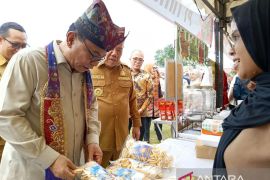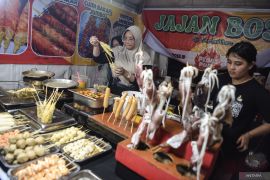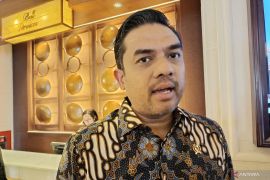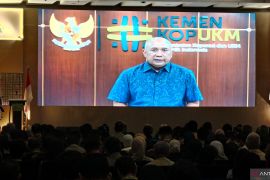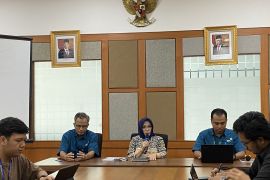"SMEs should be fully supported by various parties, including ministries and financial institutions. If we push the development of SMEs directly, it can create economic equality," Boediono said here Wednesday night, June 1.
To develop SMEs, he noted, the government should support them through financing.
"There are five strategies which are defined in ASEANs Small Medium Enterprises (SME) Development. First, promoting productivity and innovation technology," he remarked.
The second strategy is access to financing, especially banks, to support the disbursement of loans under the micro credit program (KUR) for microbusinesses.
The third strategy is market access. Boediono explained SMEs must not only operate in local markets, but in international markets as well.
"Do not let SMEs encounter greater barriers than those faced by large companies, for instance, in licensing," he said.
He further urged the government to support SMEs by simplifying business licensing.
A fifth strategy is determining the quality of the entrepreneurial ability to be shaped.
Earlier, the Indonesian government assisted the development of SMEs, which is one of the countrys economic pillars in the private sector, apart from cooperatives and state-owned companies.
In its efforts to develop SMEs, the government, since the launch of a series of economic policy packages last year, has included small businesses as one of its targets in its efforts to improve the countrys economic development.
Also, the government gave priority to export-oriented SMEs through the small holders export-oriented credit (KURBE) scheme.
The Ministry of Cooperatives and SMEs has said that the KURBE scheme will become the best solution to inexpensive financing problems faced by SME players and cooperatives.
"This potential will be managed by the Indonesian Export Financing Institution (LPEI). It is expected that there will no longer be problems for SMEs and cooperatives in obtaining cheap financing credits because of the synergy among small businesses and the LPEI," according to Deputy for Financing Affairs of the Ministry of Cooperatives and SMEs, Braman Setyo.
Braman noted that SMEs have been constrained by financing in their efforts to carry out exports. Therefore, sometime ago, the government issued a policy package which specifically dealt with a smallholders export-oriented scheme.
"This facility is provided as a stimulus for SMEs to increase the competitive edges of their products," he said.
Braman added that through this credit facility, the quality and added value of SME products are expected to increase and improve. The KURBE system provides complete export financing facilities, called export working capital credit (KMKE) and export investment credit (KIE).
With an interest rate of nine percent, without the subsidy, this credit scheme will be distributed by the Indonesian Export Financing Institution/LPEI, in this case being the Exim Bank.(*)
Editor: Heru Purwanto
Copyright © ANTARA 2016


